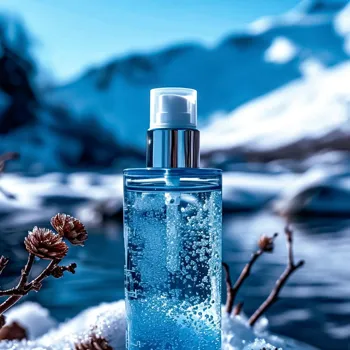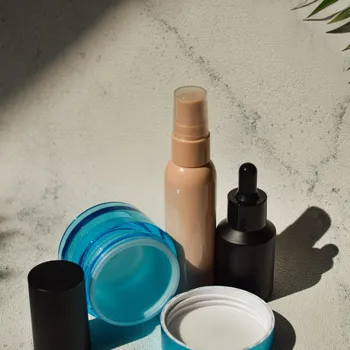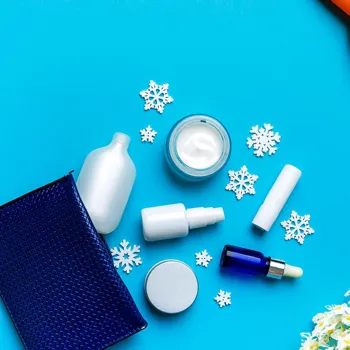Winter Skincare: Transitioning for Healthy, Glowing Skin! Learn essential tips for a winter-ready routine
The scorching summer has bid adieu, and the pleasant nip in the air signals the arrival of winter.
While we welcome the cooler temperatures with open arms, our skin requires a little extra TLC to combat the dryness and harshness that winter brings.

Transitioning your skincare routine is crucial for maintaining a healthy, glowing complexion throughout the colder months. So, ditch those lightweight summer products and get ready to embrace a routine that will keep your skin hydrated and happy all season long.
Transition skincare from summer to winter for optimal hydration and protection
The shift from summer to winter demands a change in focus for your skincare. Summer is all about oil control and sun protection, while winter requires intense hydration and protection against the elements.
The summer heat often leads to increased sebum production, necessitating lighter moisturizers and oil-absorbing products. However, as the temperature drops, the air becomes drier, stripping moisture from your skin.
This can lead to dryness, flakiness, and even irritation, making it essential to switch to richer, more nourishing products. Without proper care, your skin can become vulnerable to cracked skin, eczema flare-ups, and premature aging.
Switch to cream-based cleansers in winter for hydrated skin
During summer, a foaming cleanser might have been your go-to for removing excess oil and grime. But in winter, these cleansers can be too drying. Opt for a cream-based or oil-based cleanser instead.

These gentler formulations effectively remove dirt and impurities without stripping your skin of its natural oils. Look for ingredients like glycerin, hyaluronic acid, or ceramides, which help to hydrate and protect the skin barrier.
Avoid harsh soaps and cleansers with sulfates, as they can further exacerbate dryness. Remember to cleanse your face no more than twice a day, as excessive washing can also deplete your skin's moisture. Pat your skin dry with a soft towel instead of rubbing, which can irritate the skin.
Even on days when you don't wear makeup, cleansing your face before bed is essential to remove any accumulated dirt and pollutants. This helps to keep your pores clear and prevent breakouts. Remember to double cleanse if you're wearing makeup to remove every last trace.
Hydrate skin in winter with heavier moisturizers, layering products for max hydration
Hydration is the cornerstone of any winter skincare routine. Lightweight serums and lotions that worked well in summer may not provide enough moisture during the colder months. Introduce heavier, more emollient moisturizers, such as creams or balms.

Look for ingredients like shea butter, cocoa butter, and plant-based oils, which create a protective barrier on the skin's surface, preventing moisture loss. Layering your skincare products can also boost hydration.
Start with a hydrating serum containing hyaluronic acid, followed by a moisturizer, and then an occlusive balm or face oil to seal in the moisture. Don't forget about your body! Apply a rich body lotion or cream immediately after showering to lock in moisture.
You can also add a few drops of essential oil to your body lotion for an extra boost of hydration and a pleasant fragrance. Consider investing in a humidifier for your home, especially your bedroom, to add moisture back into the air.
Drinking plenty of water throughout the day is also crucial for maintaining hydrated skin from the inside out.
Exfoliate dry skin with care using chemical exfoliants for best results
While it might seem counterintuitive to exfoliate dry skin, it's essential for removing dead skin cells that can accumulate on the surface, preventing moisturizers from penetrating effectively.

However, avoid harsh scrubs and physical exfoliants in winter, as they can further irritate sensitive skin. Instead, opt for a gentle chemical exfoliant, such as an AHA or BHA.
AHAs (alpha hydroxy acids) like glycolic acid and lactic acid are effective for removing dead skin cells and promoting cell turnover. BHAs (beta hydroxy acids) like salicylic acid can penetrate deeper into the pores, making them ideal for treating breakouts.
Start with a low concentration and gradually increase the frequency of use as tolerated. Exfoliate only once or twice a week to avoid over-exfoliating your skin. Remember to apply a generous layer of moisturizer after exfoliating to replenish lost moisture.
You can also try using a gentle exfoliating mask once a week for a more intensive treatment. Always do a patch test before using any new exfoliant to check for sensitivity or allergic reactions.
Protect your skin year-round with sunscreen, even in winter
Just because it's winter doesn't mean you can skip the sunscreen! The sun's harmful UV rays can still penetrate clouds and cause damage to your skin, even on overcast days. In fact, snow can reflect UV rays, increasing your exposure.

Apply a broad-spectrum sunscreen with an SPF of 30 or higher every day, even if you're staying indoors. Choose a sunscreen with a moisturizing formula to combat dryness. Look for ingredients like hyaluronic acid or ceramides.
Reapply sunscreen every two hours, especially if you're spending time outdoors. Don't forget to protect your lips with a lip balm containing SPF. Apply it liberally throughout the day to prevent chapping and sunburn.
Invest in a good pair of sunglasses to protect your eyes from UV rays and reduce the risk of developing wrinkles around the eyes. Remember, sun protection is an essential part of your skincare routine year-round, not just during the summer months.
Winter skincare tips: moisturize, protect, avoid hot water
Winter can exacerbate certain skin conditions, such as eczema and psoriasis. If you suffer from these conditions, consult with a dermatologist for personalized recommendations. They may prescribe topical creams or ointments to help manage your symptoms.

For dry, chapped lips, avoid licking them, as this can worsen dryness. Instead, apply a thick layer of lip balm throughout the day and before bed. Hand cream is your best friend during winter! Keep a tube in your bag, at your desk, and by your bedside to moisturize your hands frequently.
Wear gloves when you're outdoors to protect your hands from the cold and wind. If you experience redness or irritation, try using a soothing mask containing ingredients like aloe vera or chamomile. Avoid hot showers and baths, as they can strip your skin of its natural oils.
Opt for lukewarm water instead. Adjusting your skincare routine for winter is essential for maintaining healthy, happy skin.
Winter skin health: diet, hydration, sleep, stress, clothing, omega-3
While a good skincare routine is crucial, lifestyle adjustments can also significantly impact your skin's health during winter. Make sure you're drinking plenty of water throughout the day to stay hydrated from the inside out. Include hydrating foods in your diet, such as fruits and vegetables.
Avoid consuming excessive caffeine and alcohol, as they can dehydrate your skin. Get enough sleep, as sleep deprivation can weaken your skin's barrier function. Manage stress levels, as stress can trigger flare-ups of skin conditions like eczema and psoriasis.
Wear loose-fitting clothing to avoid irritating your skin. Pay attention to your diet and ensure you're consuming enough essential fatty acids, which are important for maintaining healthy skin.
Omega-3 fatty acids, found in flaxseed oil, chia seeds, and walnuts, can help to reduce inflammation and improve skin hydration.
By making these simple lifestyle adjustments, you can further enhance the effectiveness of your winter skincare routine and achieve a healthy, glowing complexion all season long.
AI Generated Content. Glance/InMobi shall have no liability for the content















